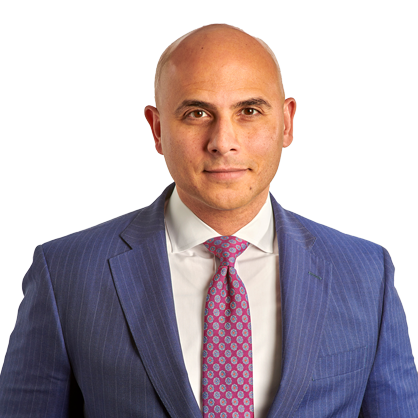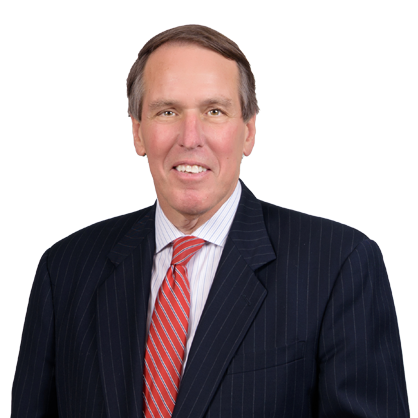Insights
Thought Leadership
White Collar Roundup - September/October Edition
Famed Gambler Doubles Down in Lawsuit Against DOJ and FBI
Legendary gambler William T. (Billy) Walters is betting big on a lawsuit filed against the federal prosecutors and FBI agents who helped investigate and convict him of conspiracy to commit insider trading. In 2017, Walters—a professional gambler regarded as one of the most successful sports bettors in Las Vegas—was sentenced to five years in prison and fined $10 million for crimes related to a long-running insider trading scheme. Walters was accused of making tens of millions of dollars trading in the stock of Dean Foods, a large milk distributor, from 2008 to 2014. He was granted early release in 2020.
Two years before Walters was charged, The New York Times and The Wall Street Journal reported that Walters, professional golfer Phil Mickelson and Wall Street investor Carl Icahn were under investigation for possible insider trading. Ultimately, only Walters was charged.
In the lead-up to his trial, Walters suggested the government had leaked confidential grand jury information to the media and requested an evidentiary hearing, as later summarized in the appellate opinion upholding his conviction. The Department of Justice (DOJ) initially opposed Walters' request because nothing in the Times or Journal articles indicated the source of the leaks was a government official. After the district court ordered a hearing, however, the DOJ changed course and acknowledged that a supervisory FBI agent had indeed disclosed information about the investigation to reporters. The government indicated it had referred the agent for possible disciplinary action and the district court, displeased, ordered the government to report on the investigation. Walters moved to dismiss the indictment based on the leaks, but the court concluded the leaks did not prejudice Walters and denied the motion. It appears no criminal charges were filed in connection with the leaks.
Last month, Walters initiated a federal civil rights lawsuit in the Southern District of New York alleging due process violations and naming as defendants then-U.S. attorney for the Southern District of New York Preet Bharara, the FBI agent who had leaked the information, and other FBI and DOJ representatives. Walters claims that the leaks were part of a pattern of improperly disclosing information about pending, high-profile white collar criminal investigations. He seeks money damages and a declaratory judgment that his rights were violated.
Walters' lawsuit may refocus attention on and perhaps even redefine the ramifications of leaks by government officials in criminal investigations. Some might say not to bet against the government. Some in Vegas might not bet against Walters. At this stage of the litigation, we aren't wagering an opinion.
President and District Attorney May Haunt One Another Long After Election
It appears some grand jury subpoenas are particularly hard to vanquish. At the time of our last update, President Donald J. Trump had secured a temporary stay of the enforcement of a New York County grand jury subpoena seeking tax records from his accounting firm. Then, in early October, the U.S. Court of Appeals for the Second Circuit issued an opinion in the Trump v. Vance litigation, denying the president relief from the subpoena and reviving the specter of an inquiry that may haunt him for years to come.
In the opinion, the Second Circuit affirmed District Judge Victor Marrero's decision dismissing the president's complaint against New York County District Attorney Cyrus Vance Jr. On appeal, the president again argued, among other things, that the subpoena was an illegitimate "fishing expedition" based on the number of documents sought and the similarities between the New York County subpoena and a federal grand jury subpoena issued in the case against Trump's former attorney Michael Cohen. The panel was unpersuaded by those arguments, explaining that the key element in assessing the appropriateness of the grand jury subpoena was not the volume or scope of the requests, but the relevance of the requests to a legitimate investigative purpose. Most notably, the panel found that Trump had not met the "difficult" and "unenviable" burden of plausibly alleging that the subpoena "could not possibly serve any investigative purpose that the grand jury could legitimately be pursuing."
For now, however, enforcement of the subpoena is once again on hold by agreement of the parties, at least pending resolution of the president's emergency application to the U.S. Supreme Court for a stay pending the filing and resolution of a petition for certiorari. In his application, the president previewed additional arguments, including regarding whether the Second Circuit misapplied federal pleading standards. The application has been briefed and awaits decision by the Supreme Court. If unsuccessful, the scope of the grand jury subpoena endorsed by Judge Marrero and the Second Circuit may bedevil the president and targets of criminal investigations for years to come.
No End in Sight for PPP Prosecutions
Small businesses may no longer be able to apply for forgivable loans under the CARES Act Paycheck Protection Program (PPP), but the government's prosecution of PPP fraud continues. As of the application deadline, more than 5.2 million loan applications had been approved, putting more than $525 billion in the hands of small-business owners in a few short months. Unfortunately, this massive fiscal stimulus has also ushered in fraud. So far, the DOJ has charged 65 defendants in 50 cases that relate to the PPP, and it's only the beginning.
Consistent with our previous report, some of the PPP fraud continues to be both creative and remarkably brazen. Recently, for instance, a North Carolina man's Game of Thrones-themed PPP scam relied on fake companies named after key characters in the HBO and book series, including Khaleesi LLC, The Night's Watch LLC and White Walker LLC. The scheme sought more than $6.1 million and ended up with more than $1.7 million in PPP benefits. With schemes this bold, it appears Winter is indeed Coming.
The scope of the problem is in some respects unsurprising. Back in June, the Government Accountability Office (GAO) reported to Congress that because of the number of PPP loans approved, their speed and the limited safeguards, the risk of approval of fraudulent or inflated applications was significant. In October, the GAO again urged the Small Business Administration to amplify its oversight of the PPP. Likewise, the congressional Select Subcommittee on the Coronavirus Crisis recently reported numerous problems, including findings that more than $1 billion in loans went to companies that received multiple loans and more than $96 million in loans went to companies debarred or suspended from doing business with the federal government.
For its part, the DOJ shows no signs of diminishing its focus on PPP abuse. Deputy Attorney General Jeffrey A. Rosen recently confirmed that hundreds of active investigations linked to PPP abuse and other coronavirus-related fraud remain ongoing, in close coordination with investigative agencies across the federal government. With a pipeline this full, we can expect PPP prosecutions to keep rolling in for the foreseeable future.
SEC Joins the Fray in Pursing COVID-19 Fraud
Standing with its DOJ brethren, the U.S. Securities and Exchange Commission (SEC) filed civil charges in September against Mark Schena, president and chief science officer of Arrayit Corp., for, among other things, false claims about the company's development of COVID-19 tests. According to the complaint, in addition to issues around the company's delinquent financial reporting, Schena made brash false claims that Arrayit had developed a COVID-19 blood test when, in fact, the company had not even purchased the materials necessary to make a test. As the SEC alleged, he further misled investors by suggesting that Arrayit had "received more than 50,000 requests" for its test and that the company was coordinating with government agencies to make the alleged test widely available.
The SEC's complaint against Schena comes a few months after the DOJ brought criminal charges against him related to schemes to mislead investors, manipulate the stock price and conspire to commit healthcare fraud through the submission of more than $69 million in false claims for allergy and COVID-19 testing. That case appears to have been the first securities fraud prosecution brought by the DOJ related to the COVID-19 pandemic.
Given the allegations of blatant fraud against Schena, it was likely inevitable that the SEC would intervene. It is less clear what the case may mean for the SEC's priorities moving forward. In remarks earlier this month, SEC Chairman Jay Clayton noted that the Enforcement Division's activities during the pandemic included six COVID-19-related fraud actions. More notably, he also referred to more than 150 newly opened COVID-19-related investigations and inquiries. The limited number of COVID-19-related fraud actions suggests the SEC may have previously focused on lower-hanging fruit, like the Schena case. But with the existence of 150 new COVID-19-related investigations and inquiries, and probably more to come, many individuals and public companies that have taken advantage of the pandemic should buckle up for a bumpy road ahead.
It's Enough To Make You Wet Your Whistle
What a difference a few short months can make. Just this summer, we reported that the SEC had set a new record in awarding $50 million to a single whistleblower, then the largest-ever award to an individual in the whistleblower program established under the Dodd-Frank Act. We described that award with phrases like "eye popping," and reasonably so, but now we find ourselves at a rhetorical loss to capture the SEC's most recent handiwork.
In late October, the SEC announced that it had awarded $114 million to a single whistleblower whose information and assistance led to successful SEC enforcement and related actions. In keeping with the size of the award, Jane Norberg, chief of the SEC's Whistleblower Office, commended the whistleblower's actions in assisting the agency as "extraordinary." She explained, "After repeatedly reporting concerns internally, and despite personal and professional hardships, the whistleblower alerted the SEC and the other agency of the wrongdoing and provided substantial, ongoing assistance that proved critical to the success of the actions." In keeping with SEC practice, the recipient was not identified. The new award brings the total dollar amount given under the program to approximately $676 million since the first award was issued in 2012.
The SEC's latest award is notable not only for its size. Interestingly, it comes directly on the heels of the SEC's recent decision to adopt amendments to its whistleblower rules, including clarifications on its determination of large awards. After months of intense debate over a proposed rule that could have capped the largest awards, the amendments adopted by the SEC did not endorse that proposal. Instead, in its release, the SEC explained that the amendments affirmed "that award amounts … are to be determined exclusively based on the application of the award factors set forth in the Commission's whistleblower rules. In other words, there is not a separate (post application of the award factors) assessment of whether award amounts are too small or too large."
Also notable, Norberg's reference to the whistleblower's repeated internal reports of his or her concerns underscores a significant and challenging issue for many companies, which encourage employees to report their concerns internally. Even with the amended rules, Norberg's cautionary statement is a pointed reminder of the importance of ensuring that, once reported internally, employees' concerns are carefully reviewed and appropriately addressed. Without this critical structure in place, a company's compliance program may just be whistling in the wind.
For more Day Pitney alerts and articles related to the impact of COVID-19, as well as information from other reliable sources, please visit our COVID-19 Resource Center.
COVID-19 DISCLAIMER: As you are aware, as a result of the COVID-19 pandemic, things are changing quickly and the effect, enforceability and interpretation of laws may be affected by future events. The material set forth in this document is not an unequivocal statement of law, but instead represents our best interpretation of where things stand as of the date of first publication. We have not attempted to address the potential impacts of all local, state and federal orders that may have been issued in response to the COVID-19 pandemic.




